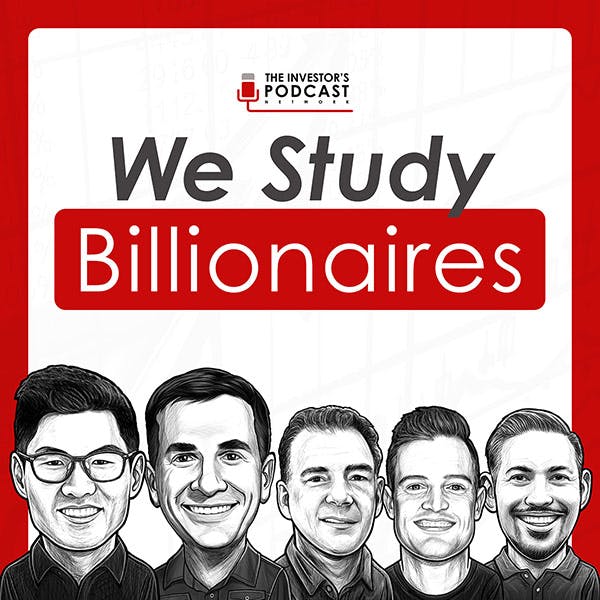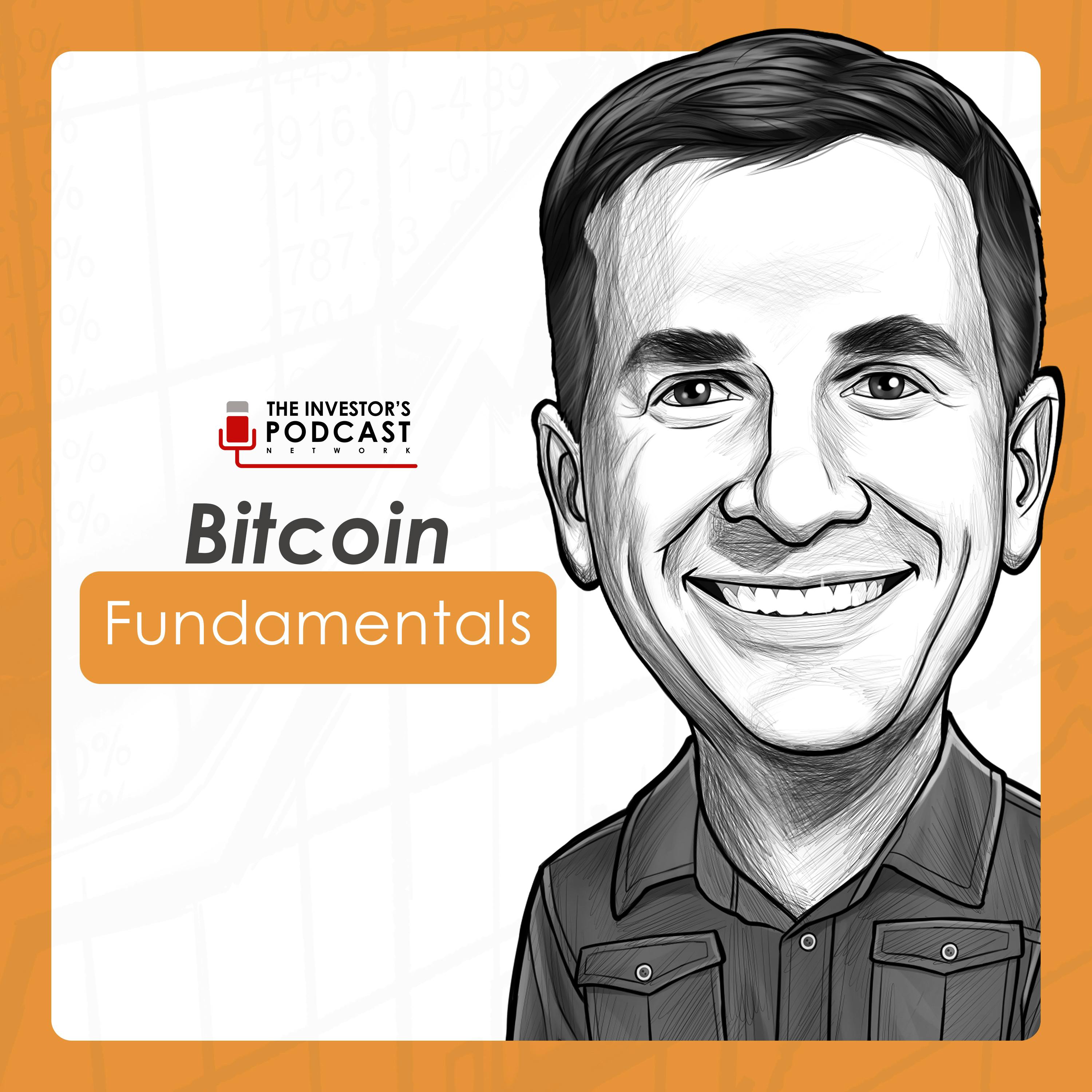
August 2, 2024 • 1hr 12min
TIP649: Owning Stocks for the Long Run w/ Pierre-Olivier Langevin
We Study Billionaires - The Investor’s Podcast Network

Key Takeaways
- Medici has achieved exceptional investment returns of 16% annualized since 2009, compared to 11.3% for their benchmark
- Medici uses an investment committee approach rather than relying on a single star investor
- They focus on companies with:
- Good and sustained return on capital
- Durable and expanding competitive advantages
- Quality management able to reinvest at high rates
- Reasonable valuations
- Key holdings discussed include Dollarama, Meta, and O'Reilly Automotive
- Dollarama has superior margins and growth compared to U.S. dollar store peers due to its business model and competitive position in Canada
- Meta's dominant social media platforms and investments in AI position it well for future growth
- O'Reilly's distribution network and focus on professional customers give it an edge in auto parts retail
- Medici aims to hold truly exceptional businesses for the long-term, even if valuations appear high at times
Introduction
In this episode, Clay Finck interviews Pierre-Olivier Langevin, a portfolio manager at Medici, a Montreal-based investment firm with an exceptional track record. Pierre joined Medici in 2011, just two years after the firm's founding. The discussion covers Medici's investment approach, use of an investment committee, and analysis of several key holdings including Dollarama, Meta, and O'Reilly Automotive.
Topics Discussed
Medici's Investment Approach and Committee (6:07)
Pierre explains that Medici uses a 5-person investment committee to make all buy and sell decisions, rather than relying on a single star investor. The committee reviews research done by analysts and aims to challenge ideas thoroughly before investing.
- Committee approach helps avoid mistakes that could occur with a single decision maker
- Allows for significant position sizes (up to 10% of portfolio) while managing risk
- Forces analysts to clearly articulate investment theses
- Key criteria: sustained high returns on capital, durable competitive advantages, quality management, reasonable valuation
Pierre emphasizes the importance of "having the discipline to hold your winners" and understanding a company's ability to reinvest capital at high rates over time.
Identifying Durable Competitive Advantages (12:28)
The discussion covers how Medici identifies companies with truly sustainable competitive advantages or "moats":
- Committee approach forces clear articulation of moat thesis
- Consider life experiences, industry knowledge, historical examples
- Bring in outside expertise when needed (e.g. AI expert presentations)
- Look for expanding moats - businesses that can reinvest and strengthen advantages over time
Pierre notes: "Not all moats are equal...we figured that some moats are expanding and some moats aren't or even shrinking."
Dollarama Investment Thesis (29:08)
Pierre outlines why Dollarama has outperformed U.S. dollar store peers like Dollar General:
- Superior business model:
- 46% of revenue from consumables vs. 81% for Dollar General
- 50% of products directly imported vs. 4% for Dollar General
- Higher private label mix
- No frozen/fresh food (lower costs)
- Dominant market position in Canada:
- 6x more stores than next largest competitor
- Dollar store industry 50% less penetrated in Canada vs. U.S.
- Returns on capital around 20%
- Store count growing 4-5% annually in Canada, 7-8% including Latin America joint venture
Pierre concludes: "The moat is just too big. If you want to compete with Dollarama in Canada, the best way, you would have to buy Dollarama."
Meta Investment Thesis (38:36)
Pierre explains why Medici maintains a large position in Meta despite recent challenges:
- Dominant social media platforms: 4 of top 6 globally by monthly active users
- High barriers to entry: Massive computing infrastructure, content moderation capabilities, advertiser relationships
- Growth opportunities:
- AI applications (internal efficiency, ad targeting, content recommendations)
- Business messaging on WhatsApp
- Instagram (30% of revenue, growing mid-teens to 20%)
- 80% EBIT margins pre-R&D and metaverse investments
- 15-20% returns on capital despite heavy investment
On metaverse investments, Pierre notes: "It's not all black and white...There's some stuff within Facebook Reality Labs that are gonna be useful and some other stuff probably it will be a write off. We'll see."
Meta's Capital Allocation (49:36)
The discussion covers how Meta has shifted its capital allocation approach:
- Heavy investment in computing infrastructure positions company for AI and future content shifts
- $63 billion in share repurchases over past few years
- Zuckerberg quote on capex: "We're still well positioned now because of the lessons that we've learned from Reels. And I decided that we should build enough capacity to support both Reels and another Reels-sized AI service that we expected to emerge so we wouldn't be in that situation again."
Pierre argues the elevated capex gives Meta flexibility to pursue multiple growth avenues or improve existing products/services.
Adapting to Change at Meta (56:05)
Pierre discusses how Medici gets comfortable with potential changes at Meta over a 10-year horizon:
- Content format changes: Meta has proven ability to adapt (e.g. text to images to stories to short-form video)
- Form factor changes: Less clear path, but may take longer to materialize
- Zuckerberg's track record of adapting to major shifts (mobile, privacy changes, etc.)
Pierre concludes: "As long as Zuckerberg is in control, we'll be fine."
O'Reilly Automotive Investment Overview (1:04:19)
Pierre explains why O'Reilly has been able to generate strong returns despite modest top-line growth:
- Superior distribution network: More frequent deliveries to stores and repair shops
- Focus on professional customers: Prioritizes parts availability over lowest price
- Gaining market share from regional players
- Counter-cyclical business model
Pierre notes: "Even though the pie is not growing well, they're just able to steal market share."
Conclusion
The interview provides valuable insights into Medici's investment approach and analysis of several key holdings. Key themes include:
- Using an investment committee to thoroughly vet ideas and avoid mistakes
- Focusing on truly exceptional businesses with durable and expanding competitive advantages
- Willingness to hold high-quality companies even when valuations appear elevated
- Importance of management teams that can reinvest capital at high rates over time
Medici's track record of outperformance demonstrates the potential of this approach when executed with discipline over many years.









